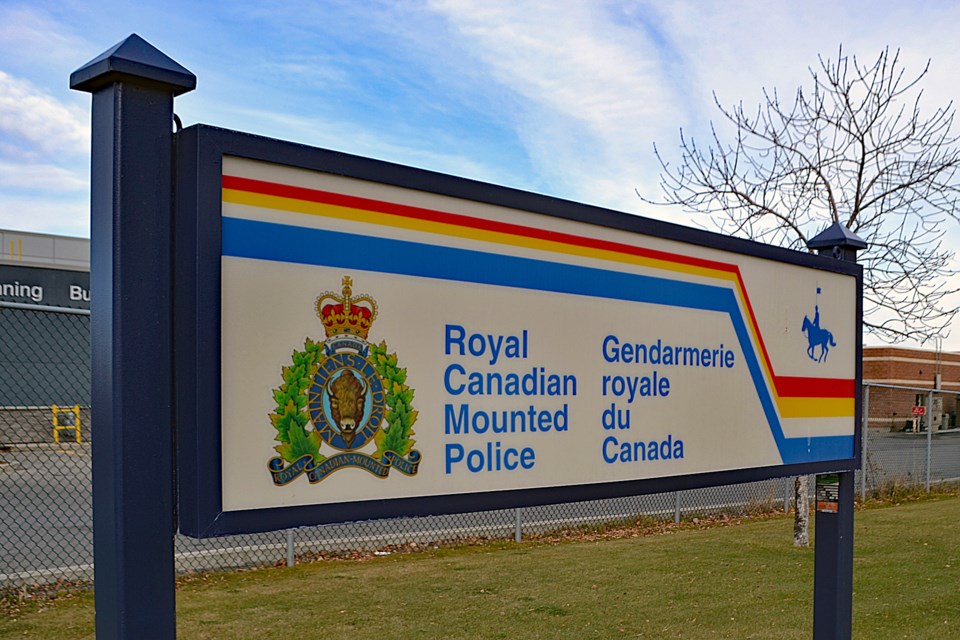INNISFAIL – The local RCMP and victim services office is seeing skyrocketing mental health cases and calls for help as the COVID-19 pandemic grimly marches on to impact many citizens’ growing burdens of financial stress and prolonged isolation from extended strict provincial restrictions.
Innisfail RCMP Staff Sgt. Chris Matechuk said within the Town of Innisfail alone, mental health-type calls for service in 2020 were up 150 per cent over 2019.
In 2020 Innisfail RCMP responded to 25 calls that ultimately saw Mounties assisting “frustrated and distraught” citizens to hospital for relief from a mental health issue, he said. The previous year local Mounties had only 10 similar calls.
“What we can say is that we are seeing a lot more frustrated and distraught people out there during our calls for service. It is a belief from officers that, yes, no doubt COVID is impacting peoples’ well being,” said Matechuk.
“Quite often the calls we go to are bad financial implications with families, and there is a whole myriad of different things that causes stress within the family make-up. We are seeing a lot of frustrated people with the isolation and lack of employment,” he added.
“One thing you hear about is the doom and gloom on media. We don’t hear very many good stories. Everybody is thinking the same way, and the totality is weighing heavily on people.
“We can’t say COVID is causing it but we can safely say it’s a factor in the stress people are dealing with.”
The 32-year RCMP veteran said calls for assistance to intervene on suspected cases of domestic disputes, or spousal abuse, has also increased, about four per cent higher in 2020 over 2019.
He added the initial training for RCMP police officers “weighs heavily” on attending spousal abuse calls because they are one of the most dangerous situations they will experience.
"You are entering someone’s home where you don’t know the layout, and every home has knives, and with western Alberta we can assume firearms. And you are dealing with people who are not themselves. They are distraught and not thinking clearly,” said Matechuk.
“It is one of the more dangerous aspects of our jobs, and significant training is done initially, and ongoing training to recognize potential reasons for mental health,” he said, adding other reasons for a citizen’s apparent mental instability could also be from diabetes, hypoglycemia or an opioid overdose.
Mary Dawn Eggleton, program manager of the Innisfail & District Victim Services office, said with most referrals for service coming from the RCMP, her office will be dealing with the same citizens for the next year or two, depending on the types of supports they need.
Eggleton said her office is “definitely” seeing increased service calls from all of today’s COVID stressors, including isolation from families and friends, and financial, which she emphasized is a “huge issue".
“COVID has definitely exasperated the stressors they are under,” said Eggleton. “People thought this was going to be over quick, like their (support) payments ran out and people thought now we get to go back to work, and they didn’t go back to work."
“So, people are really starting to feel the crunch and the stress now,” she added. “I think there was an illusion that they would wake up January 1 and 2021 was here and things would change. And it didn’t.”
And now with the past six weeks of hard provincial COVID restrictions, including increased isolation at home, and with many facing additional financial pressures, some previously reliable coping strategies are not available.
“You can’t get to the gym because it’s closed or it costs money or there is a lack of hours now because there are no longer any walk-ins. There are so many barriers to access now,” said Eggleton.
“Business owners have to raise their prices because they have to survive, but raising the prices to somebody who’s unemployed will mean cutting their membership because that was their extra.”
Eggleton said typically her office is seeing many women reach out for help but they are now seeing more men seeking assistance.
“When men reach out it’s usually because they don’t know where else to turn, like they have exercised all their options,” she said.
For any citizen experiencing a mental health issue and needs support or further information about the local victim services program call 403-227-8555.



